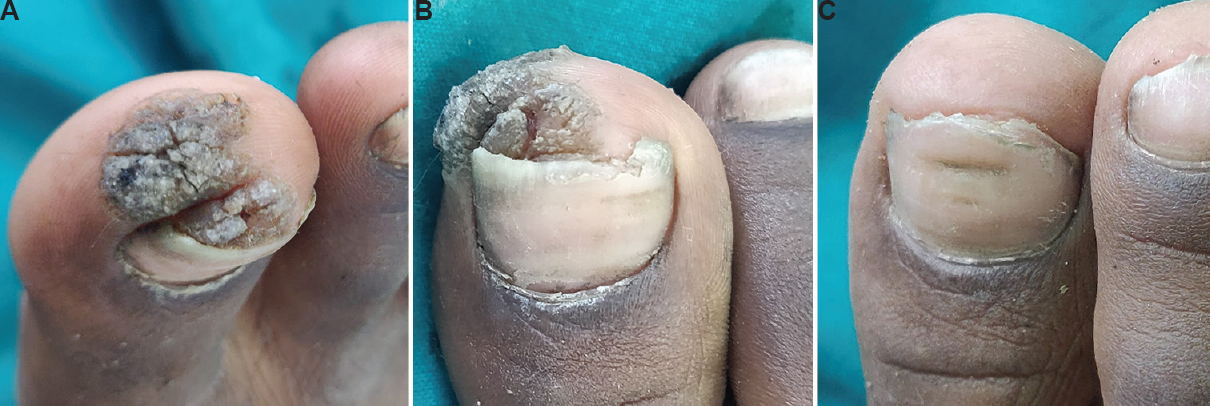Translate this page into:
Recalcitrant periungual warts in a paediatric patient treated with intralesional vitamin D3
*For correspondence: drsuresh253@gmail.com
-
Received: ,
This is an open access journal, and articles are distributed under the terms of the Creative Commons Attribution-NonCommercial-ShareAlike 4.0 License, which allows others to remix, tweak, and build upon the work non-commercially, as long as appropriate credit is given and the new creations are licensed under the identical terms.
This article was originally published by Wolters Kluwer - Medknow and was migrated to Scientific Scholar after the change of Publisher.
A seven year male child† presented to the outpatient department of Dermatology, Venereology & Leprosy, Government Medical College, Kota, Rajasthan, India, in March 2019, with multiple painful verrucous lesions over the tip of the right great toe for the last one year, involving the adjacent hyponychium and nail bed (Figure A). The patient was diagnosed with periungual warts. Before presentation, topical agents such as 100 trichloroacetic acid, salicylic acid and radiofrequency ablation had been tried followed by repeated recurrences and progressive increase in size. After confirming the patient's immunocompetent status, 0.2 ml of intralesional injections of vitamin D3 (15 mg/ml) was given at the base of the warts, after injecting local anaesthetic. Injections were repeated at three “weeks” intervals with monitoring of serum calcium level at every visit. The lesions started resolving after the second dose (Figure B), and complete clearance was observed four weeks after the third injection, with the resolution of skin markings (Figure C). Monthly follow up was done for the next three months with no recurrence.

- (A) Periungual warts over right great toe (baseline). (B) Serial improvement following second dose of vitamin D3. (C) Complete resolution with reappearance of skin markings four weeks after the third injection.
Immunotherapy has emerged as an effective and safe modality for the treatment of recalcitrant or multiple warts. Unlike other immunotherapies (such as BCG or MMR) intralesional vitamin D3 has no adverse effects such as febrile illness or abscess formation and is, therefore, considered a safe option in paediatric patients.
Conflicts of Interest: None.





